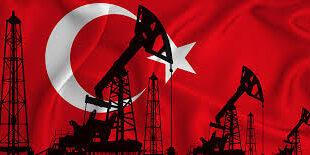LNG storage and reload activity is picking up in Southeast Asia, with at least two terminal operators offering third-party access to existing and proposed facilities. Petronas wants to add a new tank solely for storage and reload purposes at its Pengerang regasification terminal in Johor, Malaysia, and is seeking market interest in a long-term lease. Pertamina, meanwhile, is offering a five-year lease for storage and reload capacity at its Arun terminal in Sumatra, Indonesia from 4Q 2023.
Third-party storage and reload access remain limited across Asia compared to Europe. Thailand, Malaysia and China have established third-party access frameworks for LNG and gas infrastructure as part of their market liberalization efforts, but leases have been rare amid regulatory uncertainty and commercial hurdles. Many terminal operators also want to keep these facilities for their own use, especially in current markets.
The Petronas and Pertamina third-party access offers come amid growing commercial interest in Asian storage and reload services, as LNG commoditizes, and markets get more volatile. Firm and indicative demand in non-segregated storage and reload capacity at the Singapore LNG (SLNG) terminal, for instance, is increasing as winter approaches. Taking this capacity at Singapore or other Asian terminals is currently in the money after accounting for lease and operational costs, amid sky-high spot prices in Northeast Asia, market sources say.
More portfolio and trading firms see value in holding Asian LNG storage and reload capacity, as opportunities to trade and optimize physical positions grow. The counterparties pool, for one thing, is expanding as more firms enter the market. Intra-regional Asian price spreads are also more volatile, as seen in Northeast Asia price spikes last winter and this coming cold season. This makes storage – either onshore or floating – more crucial for market players to capture arbitrages effectively.
Some portfolio firms, LNG producers and end-user buyers are also interested in holding Asian storage and reload capacity for operational buffers amid seasonality volatility. These inventories can meet urgent deliveries amid sudden production and shipping disruptions. And Asian buyers can rely on stored supply for unexpected domestic demand spikes.
Southeast Asia is a key region for storage and reload services, as it is near premium Northeast Asian markets. Its demand is also less seasonal, suggesting higher likelihood of surplus volumes for winter re-export to Northeast Asia. Arun and Thailand’s Map Ta Phut re-exported their first LNG cargoes last winter – amid a huge spot price spike – to China’s Jiangsu Rudong and Japan’s Ohgishima terminals respectively. Third-party access, however, is limited. And Thailand, Malaysia and Singapore are facing tighter gas supply amid declining domestic output and pipeline imports (see LNGWM, Sep ’21). This makes reloads less likely.

 Iran Energy News Oil, Gas, Petrochemical and Energy Field Specialized Channel
Iran Energy News Oil, Gas, Petrochemical and Energy Field Specialized Channel



